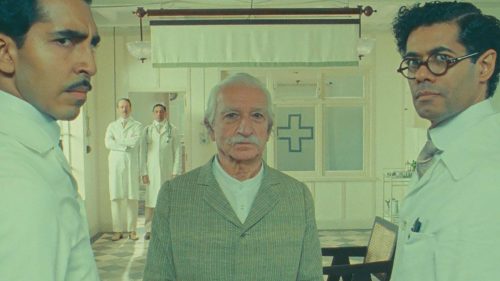

Londoner Henry Sugar (Cumberbatch) is a well-to-do man with an unfettered passion for gambling and risk. Having learned of an Indian man who can ‘see without using his eyes’, Sugar will set off
Philosopher and essayist Tzvetan Todorov, who was friends with Roland Barthes, would have loved this story by Roald Dahl. If the fantastic is a moment of hesitation between refuting or believing an apparently supernatural event, and if this feeling belongs to a character and the reader, this story is absolutely fantastic. It also helps that there’s a moral to be found, and the characters are portrayed beautifully.
Henry Sugar is the eligible bachelor: forty years old, rich, bored with life with his London villa, his Ferrari, his holidays in the West Indies. His motto is “It is better to incur a mild rebuke than to perform an onerous task” To fight boredom, he gambles and bets on everything, even on tortoise races. What a useless man. One day, banned from the latest card game, he ends up in a library and upon a manuscript. Now, in literary tradition, found manuscripts abound, from Cervantes to Manzoni. Surely, Dahl knew about Walter Scott’s Ivanhoe. The manuscript, authored by a Bombay physician, recounts a conversation with Imhrat Khan, a man who could see without using his eyes, and that’s where the story within the story begins. A boy of destitute family is enchanted by a prestidigitator and runs away with him. He soon grows tired of the same old tricks, so he tries to learn real clairvoyance from famous yogis. After years of practice, and after swearing he won’t reveal the secret knowledge he learned to anyone else, he is finally taught how to see without using his eyes.
At the time Dahl wrote the novella, Kuda Box was famous. Kuda Box is a Pakistani mystic who could walk on embers and could see while blindfold. Imhrat died in his bed after telling his story to the Bombay physician. Henry Sugar is so impressed! “He would win every single time at canasta and bridge and poker” and is determined to learn the technique himself, following the instructions enclosed in the book. After years of training, he can finally read hidden cards, and starts winning big. Dahl is obviously pulling my leg. Henry Sugar is supposed to die, as well, since he used his yogi powers for personal profit. But, “because it is a true story, it must have the true ending […] Here is what actually happened.” Discipline changed Henry. He realized that nothing gives you joy if you can have as much as you want—not even money.
Henry will dedicate his life to funding orphanages. He will have established twenty by the time of his natural death. Dahl concludes: “this story is not fiction. It is true. The only untrue things about it are Henry’s name and the name of the gambling casino. Henry’s name was not Henry Sugar. His name has to be protected. It still must be protected. And for obvious reasons, one cannot call the casino by its real name. Apart fromthat, it is a true story.”